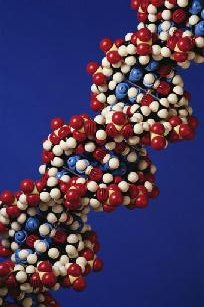 Individual differences in human sexual desire can be attributed to genetic variations, says a research group from the Hebrew University of Jerusalem. The research, appearing in the journal Molecular Psychiatry, could have a significant impact on how sexual disorders are treated in the future.
Individual differences in human sexual desire can be attributed to genetic variations, says a research group from the Hebrew University of Jerusalem. The research, appearing in the journal Molecular Psychiatry, could have a significant impact on how sexual disorders are treated in the future. Study leader, Prof. Richard P. Ebstein, the head of the Scheinfeld Center for Human Genetics in the Social Sciences of the Psychology Department at the Hebrew University, said the implications of the findings were far-reaching, and represented a potentially dramatic change in the way society may come to regard this central element of human behavior.
In the past, little has been understood regarding the biological basis for differences in human sexual behavior, with most significant variations in the expression of human sexuality considered to be the result of learned behavior or psychological make-up. But recent advances in molecular genetic studies and neuro-endocrinological investigations suggest that individual variations in many aspects of human sexuality are likely to rest on a biological foundation.
In this latest study, the Israeli investigators examined the DNA of 148 healthy male and female university students and compared the results with questionnaires asking for the students' self-descriptions of their sexual desire, arousal and sexual function. The results showed a correlation between variants in the D4 receptor gene - which is responsible for producing the dopamine receptor protein (DRD4) - and the students' self-reports on sexuality.
Some variants in this gene were shown to have a depressing effect on sexual desire, arousal and function, while another common variant had the opposite effect - an increase in the sexual desire score. The latter is believed to be a relatively new mutation, and it is estimated that it appeared in Homo sapiens only 50,000 years ago (around the time of humankind's exodus from Africa). Approximately 30 percent of many population groups carry the heightened arousal mutation, while around 60 percent carry the depressant mutation.
The researchers suggest that the new findings might spark the development of new treatments for sexual dysfunctions based on pharmacogenetic strategies. The investigators note that many variations such as low sexual desire may be quite normal, and not necessarily a product of sexual dysfunction.
Based on material from the The Hebrew University of Jerusalem





